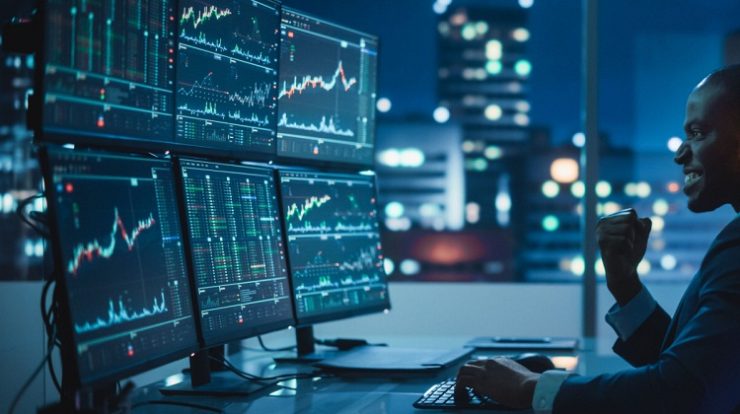
Trading is the fastest-growing market in the world. Forex is one of the most liquid markets, with a daily turnover of over 5 trillion dollars. High liquidity means that you can make profits on just about any trade; you don’t need to be right about whether an asset will go up or down because it’s already going up or down.
The high liquidity of this market is excellent if you want to profit from the price swings.
Liquidity means enough money is available for trade on a particular asset or currency pair. For example, if you want to buy or sell $10 million worth of EUR/USD (Euro vs US Dollar), then you would be able to do so because there are enough traders involved in this market who are willing and able to take your business at that moment. If not, then you might need help finding someone who wants your order, even if they only need a small portion of it and could fill the rest with their own orders. This is called “slippage.”
The tight spreads are great for getting more profits.
You can make a lot more money in forex than in other markets. This is because the spreads are smaller, which means there is less of a difference between the price at which you can buy and sell a currency. The tighter the spread, the more profit you will make on each trade (and vice versa). In forex, some brokers offer spreads as low as 0.1 pips (or 0.0001%), while others provide spreads of up to 5 pips per lot traded. That’s an improvement from other markets where you may have to pay hundreds or thousands of dollars for every small change in price that happens during an hour-long stock market trading session.
The leverage lets you take more prominent positions with less capital.
Let’s say you have $10,000 but only want to use it for a small percentage of your overall portfolio. As such, you’re willing to put in more money than usual—for example, $20,000 as opposed to just $2,000—because it will give you access to more assets for your overall portfolio size (or “position”), and profitability potentials increase exponentially due to leverage.
It’s highly liquid, which makes it easy to trade in and out of positions. Therefore, you can also make money on falling or rising prices.
Each currency pair has two prices, one expressed in terms of the other. For example, if you trade the US dollar against the Japanese yen, 1 dollar will buy you 100 Japanese yen (USD/JPY). If that rate changes and 1 dollar buys you 101 Japanese yen, then your trade has made money for you. The reason is that the price of USD/JPY has moved from 100 to 101; there are more dollars required to buy one unit of Japanese currency. You can also make money when a currency’s value falls as well as rises — but only if you have access to forex trading capital so you can take advantage of opportunities like these.
The ability to trade efficiently and quickly makes it easy for traders on both sides of a transaction: buyers who want to buy at low prices and sellers who wish for high prices can make both profits without delay or difficulty.
Currency trading is a fascinating way to make money in the foreign exchange market. You can use leverage to take more prominent positions, trade-in and out of them quickly, and use the tight spreads to make more profits. The leverage lets you take more significant positions with less capital, so it’s easy to trade in and out of positions without worrying about losing too much money if things go wrong.






